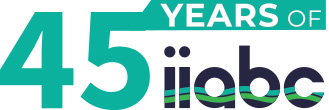Choose the Professional Contractor
Choosing the right contractor to design and install your irrigation system is a more serious task than you may think. How the system is designed and installed can make or break a system. A properly installed system also helps to conserve water. That is why a professional contractor's expertise and specialized skills are so important in guaranteeing a job well done.
Here are some tips in selecting a contractor
These questions should be asked before a contractor submits a proposal on your landscaping in order to protect yourself and your investment:
- Do you have a business license and will you show it to me?
- How many years has this specific company name been in business and can you supply reliable references?
- Does your company carry liability insurance and if so, to what extent?
- What type of cross connection control or backflow prevention is required by our municipality? Does your company have a certified cross-connection (backflow) expert on staff?
- Is your company a member of the Irrigation Industry Association of B.C.? (You can search for Certified Professionals on the IIABC's website to verify this.)
- If I select your design, are you able to stamp your design with an approved IIABC Certified Irrigation Designer stamp or have an approved designer certify it? (IIABC Certified Irrigation Designers are also searchable under the IIABC's website Certified Professionals tabl.)
- What types of products will you use and why?
- Is the contractor able to provide irrigation scheduling information using farmwest and /or the IIABC scheduling calculator?
- Has the contractor provided a schedule to match peak conditions and provided information on how to adjust the schedule?
- Will the irrigation system be able to provide sufficient water to the plants within the local government watering restrictions?
1. Estimate
A contractor should present an
estimate detailing the type and location of all the products he plans to
install. His complete price for materials and installation should be
contained in the estimate.
2. Warranty
The contractor should be able to
explain to you exactly how your sprinkler system will operate. He also
should be willing to guarantee his work with a 1-year warranty on the
new system.
3. Site Plan
A contractor should provide the
customer with a suitably scaled as built drawing. All components of the
irrigation system shall be shown as installed, with clear measurements
from an identifiable reference point to the location of the controller
and its circuit breaker, master valve, zone control valves, main water
connection, blow out connection, and any other similar features.
4. Operating Manuals
A contractor should provide a
manual containing operating and maintenance instructions for all
components of the system. Clear instructions should be provided for
operating the irrigation system "in season" showing the relative timing
differences between zones of different precipitation rates, and a
schedule of run times suggested for various weather conditions.
5. Service
A professional contractor should be
willing and able to provide after-sale service such as winterizing the
irrigation system. He also will know how to fine tune controller
settings of an automatic irrigation system to eliminate over watering
and minimize runoff.
Be Wary of:
Any contractor who offers to charge you significantly less than other contractors. Low cost bidders often use the following tricks of the trade to save material costs:
- Tell you a backflow preventer is not required.
- Not use special water-tight connectors for electrical connections.
- Mix sprinklers that have significantly different discharge rates on the same line.
- Install sprinklers too far apart, which makes it impossible to obtain proper overlap and will result in brown spots during the hot summer months.
Click here for information on IIABC Certification and or Certified Professionals.
